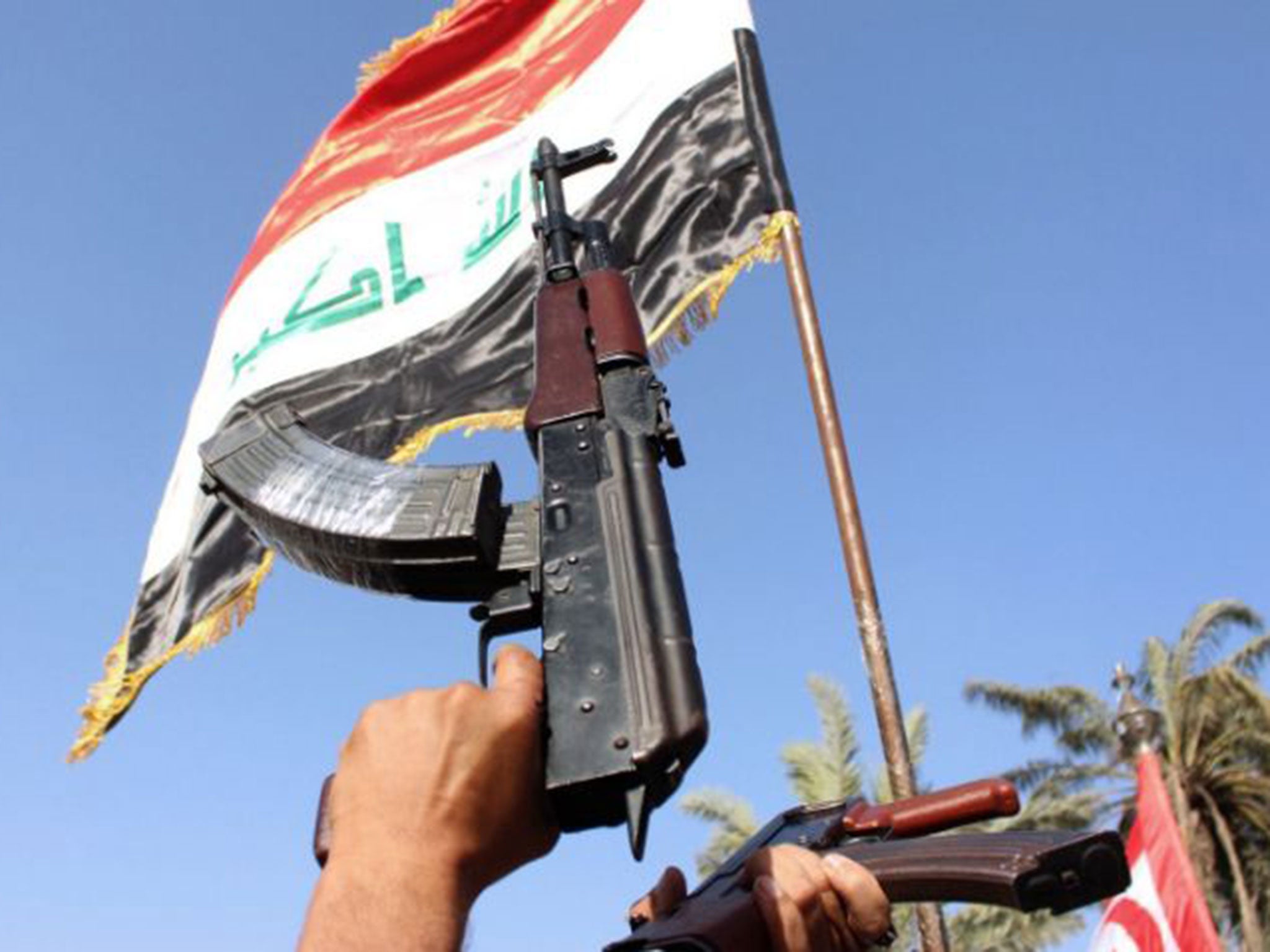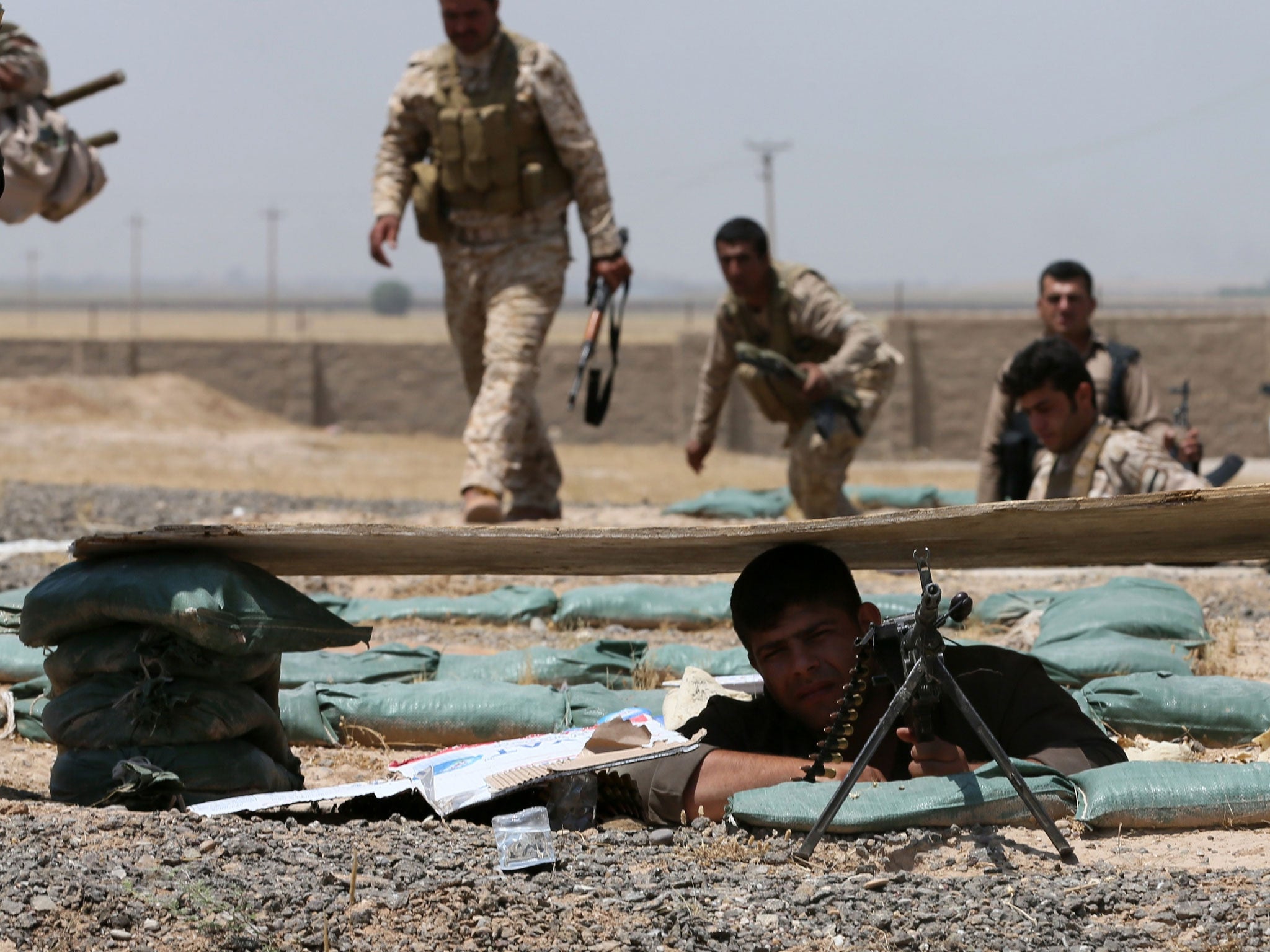Iraq crisis: Isis declares its territories a new Islamic state with 'restoration of caliphate' in Middle East
Militants name Abu Bakr al-Baghdadi as Caliph as experts say move represents 'new era of international jihad'

Your support helps us to tell the story
From reproductive rights to climate change to Big Tech, The Independent is on the ground when the story is developing. Whether it's investigating the financials of Elon Musk's pro-Trump PAC or producing our latest documentary, 'The A Word', which shines a light on the American women fighting for reproductive rights, we know how important it is to parse out the facts from the messaging.
At such a critical moment in US history, we need reporters on the ground. Your donation allows us to keep sending journalists to speak to both sides of the story.
The Independent is trusted by Americans across the entire political spectrum. And unlike many other quality news outlets, we choose not to lock Americans out of our reporting and analysis with paywalls. We believe quality journalism should be available to everyone, paid for by those who can afford it.
Your support makes all the difference.The Islamic State of Iraq and the Levant (Isis) has reportedly declared the areas it occupies in Iraq and Syria as a new Islamic state, removing Iraq and the Levant from its name and ushering in “a new era of international jihad”.
The announcement will see Isis now simply refer to itself as The Islamic State, and the group has called on al-Qa’ida and other related militant Sunni factions operating in the region to immediately pledge their allegiance.
According to Isis’s chief spokesman Abu Mohammed al-Adnani, the declaration of the “restoration of the caliphate” was made after a meeting of the group’s Shura Council. In recent weeks, Isis has captured large areas of western and northern Iraq and for two years has held parts of Syria, imposing a harsh interpretation of Islamic law and in many cases, killing large numbers of opposition Shia Muslims.
Adnani said all jihadist organisations must now offer up their support to Isis leader Abu Bakr al-Baghdadi, who has been declared Caliph of the new state.
Charles Lister, visiting fellow at the Qatar-based Brookings Doha Centre, said that the declaration signalled “massive trouble” regardless of the perceived legitimacy of the Isis group, adding that the next 24 hours will be “key”.
Charlie Cooper, a researcher for the Quilliam counter-extremism think-tank, said the fact Baghdadi has been named Caliph was particularly controversial.
He told The Independent: “There hasn’t been a Caliph since the Ottoman Empire outside of the Ahmadiyya sect of Islam, and the Caliph is appointed as the only legitimate successor to Prophet Mohammed.”
“The fact that Isis has done this has huge ideological and theological implications and it is a big challenge to al-Qa’ida, their spokespeople may well try to reclaim their legitimacy.”
In the latest example of Isis’ sophisticated use of social media, Cooper said a new propaganda video released 15 minutes before the announcement included a “hint” towards what was about to come, with a Chilean foreign fighter describing Baghdadi as his “Caliph”.
“Everything that Isis has done has been very tactical with meticulous in planning,” he said.
“There will be a lot of criticism from people saying announcing the restoration of the caliphate is premature, but Isis have rapidly evolved over the past few years and there’s now a cult of personality about Baghdadi in Arabic social media.
“He is a very popular figure, and this will make people from al-Qa’ida and other groups question whether they should really be fighting for him.”
The news came as the Iraqi army was reportedly pushed back by rebel fighters protecting insurgent positions in the northern city of Tikrit today.
The military began its attempt to win back control of the city on Saturday, with a multi-pronged assault spearheaded by ground troops backed by tanks and helicopters.
Security officials said the army was coordinating the campaign with the US, but reports from the ground suggested it had been forced to pull back to the town of Dijla, 25km to the south, after a failed assault in which both sides suffered casualties.

Meanwhile, Iraqi officials said they had received delivery of the first Russian fighter jets it has bought second-hand to help stop the militants’ advance.
The five Russian Su-25 planes are expected to enter service in the next three to four days, with more of the planes understood to be arriving soon.
Iraqi air force commander Anwar Hama Amin said the military is “in urgent need of this type of aircraft during this difficult time”.
Iraq’s Prime Minister Nouri Maliki has blamed much of the rebels success on the Iraqi military’s lack of air support. The country signed contracts to buy F-16 jets from the USA, but has been slow in receiving them.
He said Iraq is also hoping to acquire second-hand fighter jets from Belarus. The deals are together thought to be worth about $500 million (£293m).
The UN says that more than 1,000 people, largely civilians, have been killed in fighting between Iraqi forces and the rebels.
The US has now deployed drones to the region around Tikrit, Saddam Hussein’s home town, though the White House said it has not yet authorised air strikes against militants and the drones will only be used for ‘force protection’.
Other countries including Iran are thought to have stationed military equipment and forces in the region.
Professor Peter Neumann, of the International Centre for the Study of Radicalisation at King's College London, said the significance of the announcement should not be underestimated.
“It's a declaration of war - not only against the West and all the countries that are currently fighting Isis but, more importantly, against al-Qa’ida. Isis now see themselves as the legitimate leaders of the movement and they expect everyone to fall in line.
“For ideological jihadists, the caliphate is the ultimate aim, and Isis - in their eyes - have come closer to realising that vision than anyone else. On that basis, Isis leaders believe they deserve everyone's allegiance.
“This could be the end of al-Qa’ida. It depends on how al-Qa’ida will respond. Unless they come out fighting, this could mark the end of [Osama] Bin Laden's vision and his legacy.”
Prof Neumann said the declaration of a caliphate showed how confident Isis was after making spectacular gains in Iraq in recent weeks.
“They haven't lost any of the momentum they gained when capturing Mosul,” he said. “On the contrary, they've held on to it, gained more territory and have seen jihadists from other groups swear allegiance to Isis.
“They must think their dream of creating the caliphate is finally coming true, and it's coming true faster and more dramatically than even they expected.”
Join our commenting forum
Join thought-provoking conversations, follow other Independent readers and see their replies
0Comments